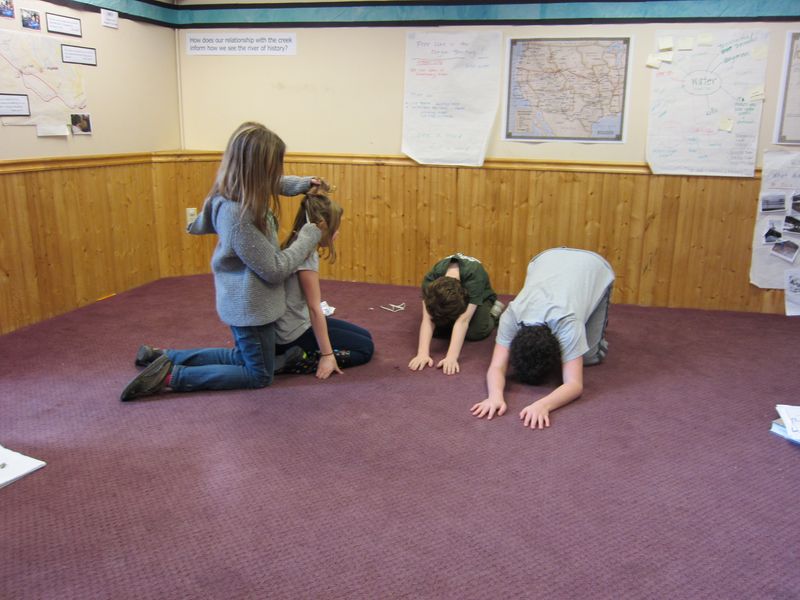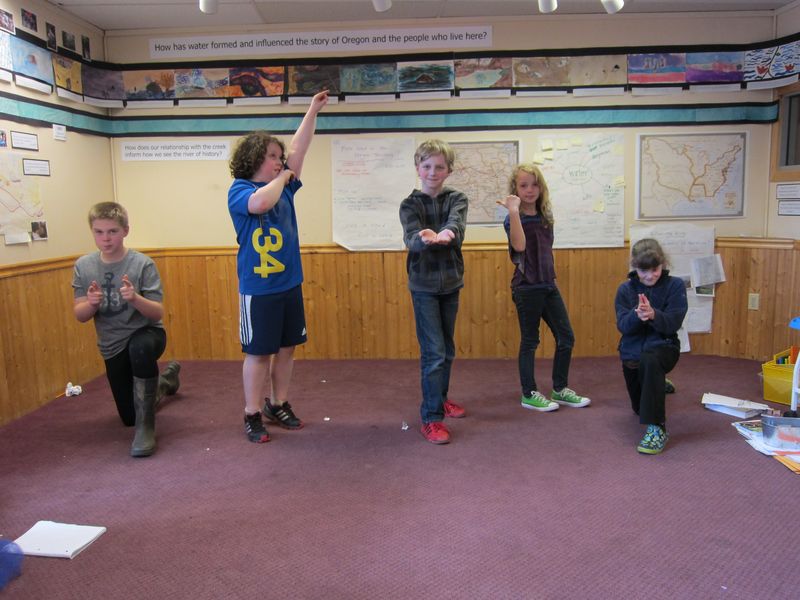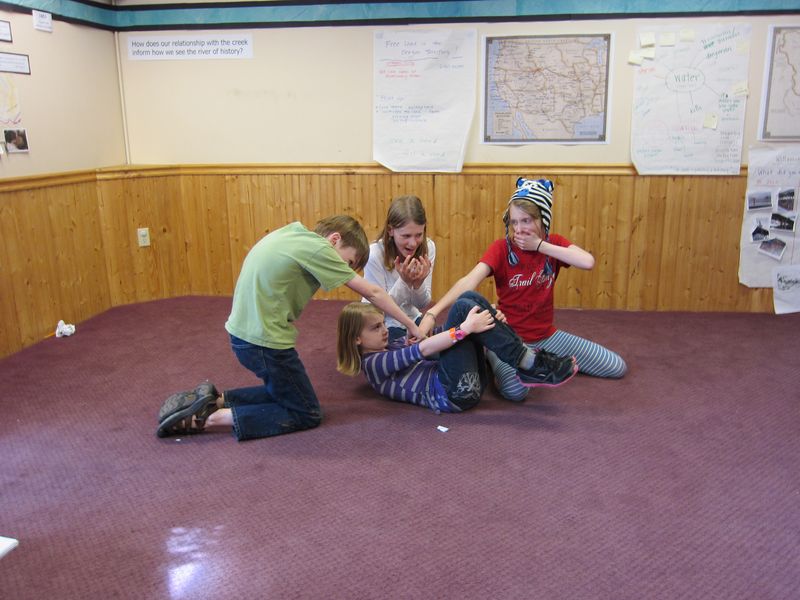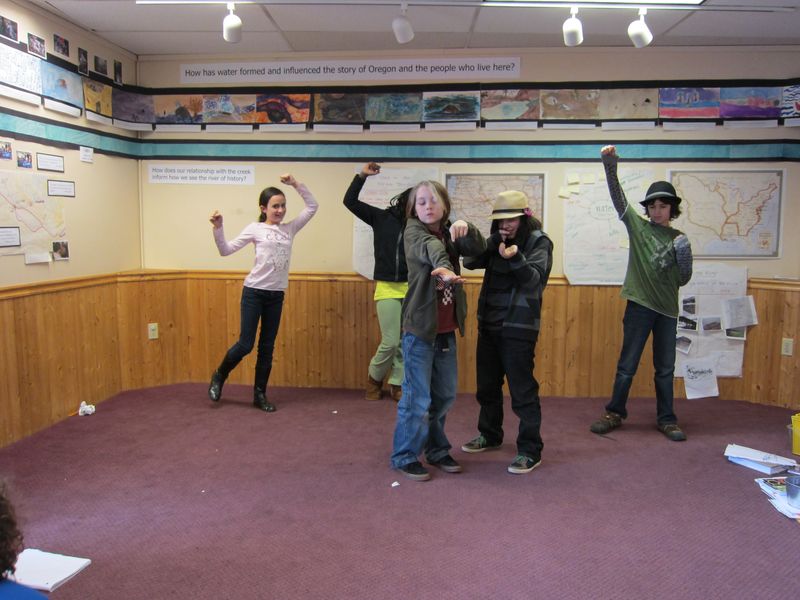Seeing through someone else’s eyes

On April 6, 2012, I gathered the class on the stage to follow up from our previous work.
Levia: Do you know this book?
SBM: That’s where you got the treaty negotiation.
Levia: Right, so, what do you think, do we need to finish reading it?
No / Yes mixed…
Levia: Do we know what is going to happen?
MM: They will get kicked off their land and be forced to move.
DO: They will send them to the reserve beyond the Cascade Mountains.
Levia: And when the Americans decide they want that land?
DO: They will kick them out again.
EY: It’s like Celilo. It doesn’t matter what the Indians thought. They always get kicked out. It’s really sad.
Levia: And it’s hard. You’re right. Generally, in the history of our country and our state, that story repeats itself. Why do we spend time studying these sad, hard stories?
SBM: If we don’t study them, when we grow up and we’ve got all the power and one of us becomes president, you can make good or bad choices. If we know about this it will influence how we act.
MM: and not let it happen again.
RC: We will have respect for other cultures.
Levia: Do you have to be president to let these stories influence how you act?
EY: or governor
BM: no, regular people too!
MC: If you’re Irish or Scottish you’re a mongrel. That’s what they used to say. It happened to my people too.
SBM: Civilians have power. There are so many of them and they’ve been told this that they own their land.
AW: If we focus on what we did wrong, all we need to know is a couple of stories. We shouldn’t get caught up in what did happen; we should get caught up on what we can do to get positive. When I was little I used to worry about fires and earthquakes and tsunamis, but now I know that I have to focus on the things I can control, like knowing what to do if there is an emergency.
AW: We can’t change history, but we can change the present and the future.
So we didn’t finish reading the story. Instead we took some time to think about how these two groups of people saw each other through the drama tool, tableau:
The Santiam Kalapuya through the eyes of the government officials
MC: BM was scalping ME.
MM: The pioneers were afraid of the Native Americans because they thought they would get scalped.
RC: Were you praying?
MM: We were bowing down to the government because they thought they thought (says carefully) that the Great Father was God.
DW: I was acting small.
BM: They thought that the Native people were little and insignificant.
MM: We were bowing down to their power.
The government officials through the eyes of the Santiam Kalapuya
EY: HH was telling the Indians to get out and NF was going to shoot them.
DO: SBM was pointing – go over there. I was giving them a gift. Look, here’s your gift, now get out of here!
SBM: Yeah, don’t bother our white children.
ET: It’s like a goodbye present.
The Santiam Kalapuya through the eyes of the government officials
DO: KB was a bull.
SBM: Like disgusting.
KB: Right, no manners, they thought the Indians were savages. The government officials would eat with a fork and spoon and have manners.
MC: The Indians used forks.
KB: This is what the government people assumed.
EY: They wanted to teach the Indians manners and how to farm.
The government officials through the eyes of the Santiam Kalapuya
RC: MG is threatening me.
MC: I’m pointing to my hand.
JL: I think you want the Native Americans to give you something.
MC: Yes!
MG: The people in the back are the supporters of America.
As the teacher in this classroom, I am amazed by the layers of understanding here – from the government fearing the Indians their unfamiliar culture to seeing the Indians as less important, small savages, to the Indians seeing the ploy of the government to lure them out with money and gifts and send them away. Two details stand out for me: EY’s comment about teaching the Indians how to farm, which was a huge part of the government policy that she has invented for herself, and the back row of patriots in the last tableau. When we held our negotiations, we had “interested parties” from both sides sit behind the representatives who sat at the table. What did they see from behind? What did they know and understand? And how did they support and encourage the negotiators? Is that what the cheering supporters of America stand for? They can’t see the gift or the gestures in front of them. How is their government representing them? And what can we do about it?





